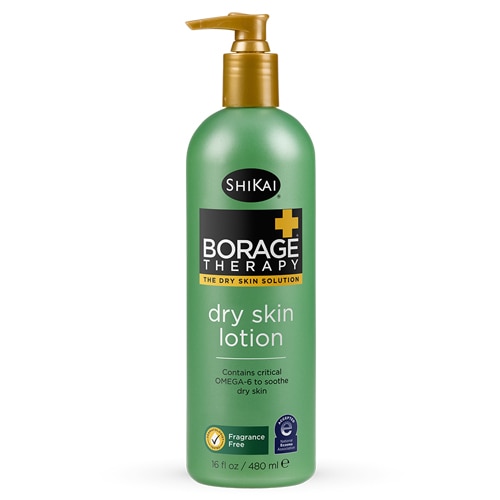Winter technically begins on December 21, but temperatures dip and heaters are turned on long before then. Along with shorter days and increased time indoors, another winter annoyance is dry skin. For many of us, forced air and harsh weather bring on itchiness, dryness, discomfort and even cracked or chapped skin. Dehydrated skin also makes wrinkles and other signs of aging more visible. All in all—this season is no fun for the complexion!
If you struggle with the effects of winter, try these six natural home remedies for dry skin.
1. Adjust your shower habits
There’s nothing better than a steamy shower on a cold morning to wake you up. Unfortunately, hot water is counterproductive to skincare, it strips away the natural oils in your skin.
“Hot water causes damage to the keratin cells which are located on our most outer layer of the skin — the epidermis. By disrupting these cells, it creates dry skin and prevents the cells from locking in moisture,” says wellness expert, Dr. Jacqueline Schaffer.
You don’t have to go completely cold-turkey. Try limiting shower length, or alternating with warm/cool temperatures.
Another shower tactic is to moisturize directly right after you get out, while skin is still moist. Lotions are designed to help lock-in moisture in your skin, using them while skin is still damp, makes that job easier.
2. Sleep with a humidifier
Cranking up the heat on cold winter nights can lead to arid conditions in your bedroom while you sleep, which exacerbates dry skin. A humidifier will work to prevent this. Dr. Riley Greene of the Denver Skin Clinic, explains: “Using forced-air heating in your house, can decrease the humidity level to 10 percent. The skin needs humidity levels of at least 30 to 40 percent to stay healthy.”
You can use heated-mist or cool-mist humidifiers to increase humidity levels while you’re snoozing. Many humidifiers also offer diffuser options so that you can add essential oils—an aromatherapy bonus that will make your bedroom feel like a spa!
3. Add oils to your skincare routine
Essential oils can be an effective way to treat winter dryness without the use of harsh chemicals or heavily processed skincare products. There are many oil options, but here are three that are perfect for dry skin—you might already have them in your cupboard.
- Sunflower seed oil is high in vitamin E and has calming properties that can bolster the moisture-retaining ability of your skin. There are also clinical studies that back up both the anti-inflammatory and moisturizing qualities of sunflower oil.
- Coconut oil is a lighter moisturizer, good for those with sensitive skin. Studies have shown coconut oil is an effective and safe way to improve skin hydration and even treat eczema.
- Argan oil is often used in hair products for its moisturizing properties, but also has benefits for your skin. "The fatty acids help our skin cells make healthy membranes, reduce inflammation and promote healthy collagen," explains professor of dermatology Joshua Zeichner, assistant professor of dermatology at the Mount Sinai Medical Center.
4. Take a bath
Baths are not only a way to relax and unwind, but if you add two common household ingredients—milk or oatmeal—you can also help tackle winter dry skin.
Milk Bath- Adding a few cups of milk to a warm bath has multiple benefits for dehydrated and bothered skin. The lactic acid is soothing, with both cleaning and softening properties, which works to remove dead skin cells. Fats and proteins in milk also leave skin feeling soft and supple.
Oatmeal Bath- This classic home remedy was often prescribed for severe rashes, itching or eczema—you may have sat in an oatmeal bath when you had chicken pox as a child. Oatmeal can also combat general dry skin. Studies have shown that oatmeal can improve scaly and rough skin caused by dehydration, as well as maintain a healthy skin surface pH. Be sure to only soak for about 10 minutes, though, as too much exposure to oatmeal can have the opposite effect.
5. Try an overnight treatment
Lathing up your feet with lotion or oil, then putting on cotton socks before bed is a common overnight treatment for dry heels or rough feet. You can also use this to treatment with moisturizing gloves for dry or cracked hands.
In the same vein, consider an overnight oil soak for your entire body. Directly after taking a bath or shower, lather up with oil—a perfect job for your new friend coconut oil. Then put on old pajamas (oils can stain) and head to bed. The oil will soak in overnight with the pajamas helping to lock in the moisture, you’ll wake up with soft and refreshed skin.
6. Avoid these ingredients in your skincare products
Certain scented skincare or non-natural products have a long list of active ingredients that can actually make dry skin worse. Even if a product promotes dry skin relief, always check the ingredient list. Dermatologist Dr. Ellen Marmur suggests steering clear of products that contain any of the following ingredients:
- Isopropyl alcohol
- Sodium chloride
- Sodium lauryl sulfate
- Sodium laureth sulfate
- Ammonium lauryl sulfate
- Soaps such as sodium tallowate or cocoate
- Salicylic acid
- Willow bark (the natural version of salicylic acid)
- AHA acids





